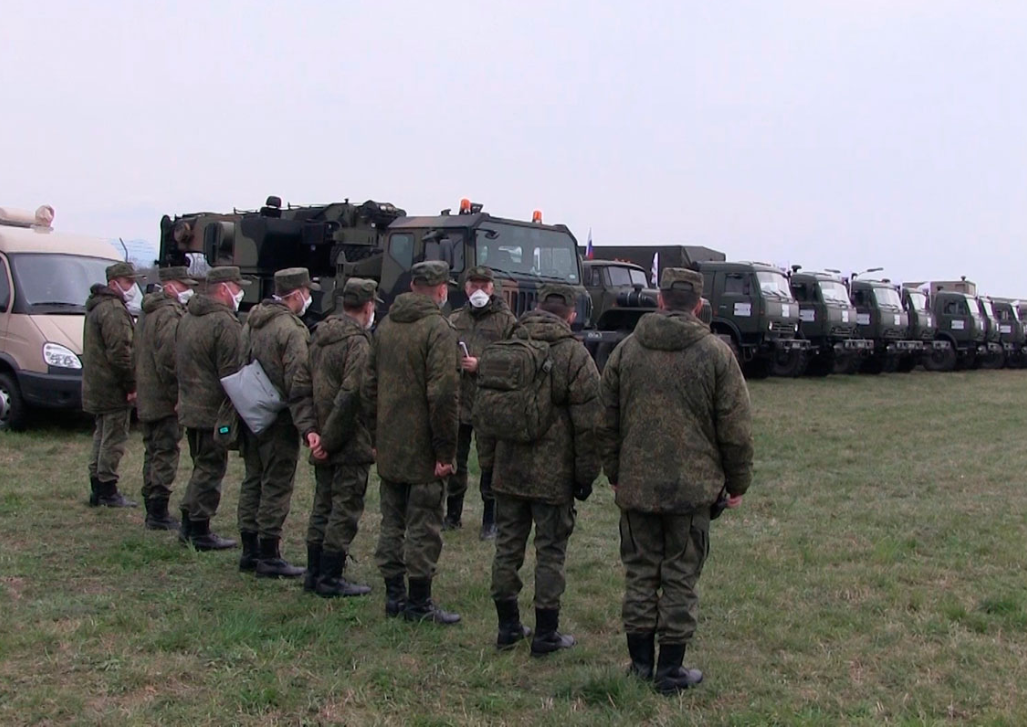What is going on in Italy these days? There is the most important sanitary and economic crisis in the post-WWII era. Yes, indeed. That is very visible, and we all know – and see – it. But there are also several bizarre political dynamics and diplomatic maneuvers that need to be addressed, at the very least for the sake – and the health – of the public opinion.
As the Coronavirus crisis unfolded in Italy, Rome became the target of many soft power operations: China, Russia, Cuba, Vietnam, Albania. Do not get us wrong: in times of extreme crisis, help from whoever can help is much needed.
However, these soft power operations are also triggering some doubts. After a phone call between Russian President Vladimir Putin and the Italian Prime Minister Giuseppe Conte, Russia decided to step in, sending around fifteen cargos transporting military personnel, virologists, epidemiologists, and medical equipment, carrying the message “from Russia with love”.
Italy was not the only country that Russia wants to help: Moscow even sent a cargo full of medical material to the United States. This activism is not surprising: it is the direct result of the renewed confidence of Russia. Confidence that Russia has found and strengthened in Georgia, Kyrgyzstan, Tajikistan, Syria, Armenia, Ukraine, Libya over the past years. As such, Moscow has become more and more assertive on the international stage, and this medical help is part of this assertiveness.
For President Putin, these operations serve two aims. They address the domestic public opinion, reinforcing the sense of pride in seeing Russia returning playing its natural role on the international stage. They also address the public opinion of recipient countries: frustrated with their leaderships, their slow capacity of reaction and lack of decisiveness, larger sectors of Western public opinions are more and more fascinated by the resoluteness that Putin shows in many situations. This feeling is also nurtured by the massive propaganda network that Russia has put in place over the past years. Straight from the Soviet playbook. Nothing strange here, all this is very well known.
However, in Italy, the Russian operation had some peculiarities. Two, among others, are particularly relevant: its visible military optics, and the quarrel – which has gained further momentum over the past few years – between Russian authorities and the Italian press, namely the newspaper La Stampa.
The military optics of this operation raised more than an eyebrow, in Italy but also in Brussels: having Russian military personal moving on the roads of a Nato member state is something unusual. For some people, it is also something rather frightening.
La Stampa reported, in two articles published by Jacopo Iacoboni on 25 and 26 March, that high-level sources said that 80% of Russian supplies are redundant and of little use to Italy. These remarks triggered several heated reactions. On 26 March, the Russian ambassador to Rome, Amb. Sergey Razov addressed a letter to La Stampa criticizing the views expressed in these articles. However, this was not the last episode in this row, which has escalated further since. On 2 April, Iacoboni published with Natalia Antelava an article on La Stampa titled “Tra i soldati russi con gli aiuti anche ufficiali dell’intelligence” (among Russian soldiers also with the help of intelligence officials) and a more comprehensive story in English for Codastory titled “The influence operation behind Russia’s coronavirus aid to Italy”. Hours after the article was released, the Russian Foreign Ministry Spokeswoman Maria Zakharova accused La Stampa of spreading fake news.
A mild reaction, particularly if compared to the statement released by the spokesman of the Ministry of Defence of the Russian Federation Major General Igor Konashenkov a few hours later, which read in its conclusions:
“As for the attitude to the real customers of the Russophobianmedia campaign in La Stampa, which we know – we recommend that you learn the ancient wisdom – Qui fodit foveam, incidet in eam (He that diggeth a pit, shall fall into it). And to make it clearer: Bad penny always comes back.”
These words are chilling. Is this a direct and open threat to an Italian newspaper and journalist? Something that outspoken and big cannot – and should not – go unnoticed. In Italy, the freedom of speech cannot be questioned in any case, especially in these terms. However, there is also more: Ms. Zakharova made a reference to a British company in her remarks, saying that a “Company registered in the UK is behind the article published in Italy’s La Stampa”. Major General Konashenkov made a reference to a “bad penny”.
Given the proverbial Russian attention to words and details, this specific reference is not casual. If it’s there, it’s there to send a message. Russians are terrifically skilled in the games of mirrors. If they say they know who is behind these Russophobic articles, they are being very specific in their pretended generality, an equilibrium that Russians master perfectly. Whatever is the message, the assumptions behind it are frightening: tension is rising; “fair play” is disappearing; red lines are fading.








